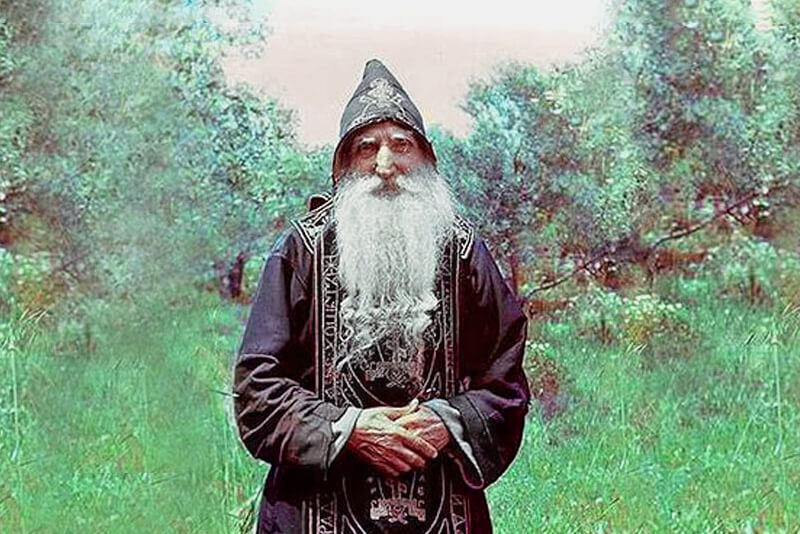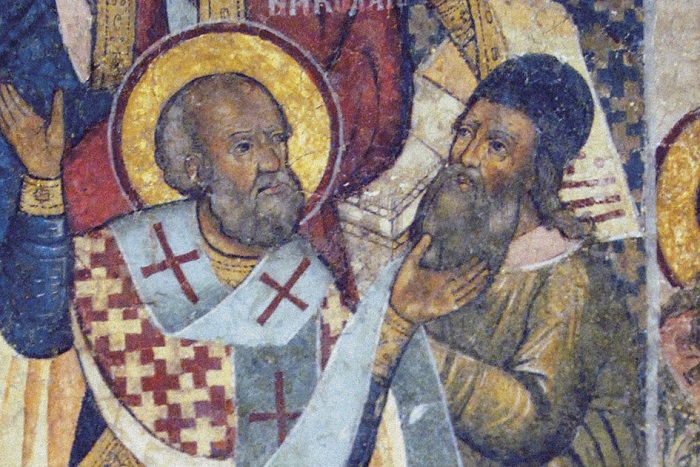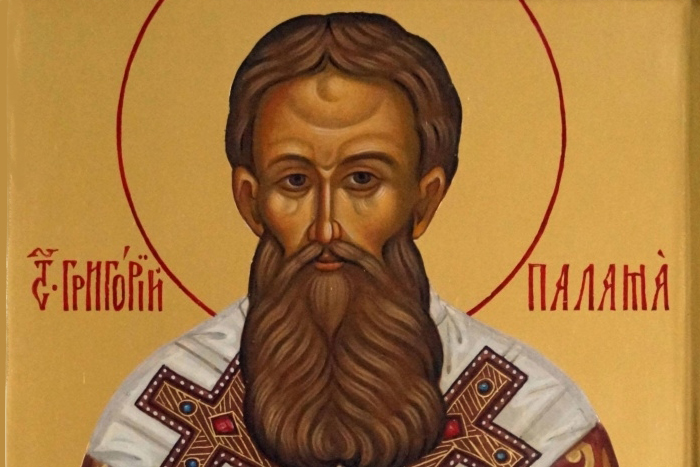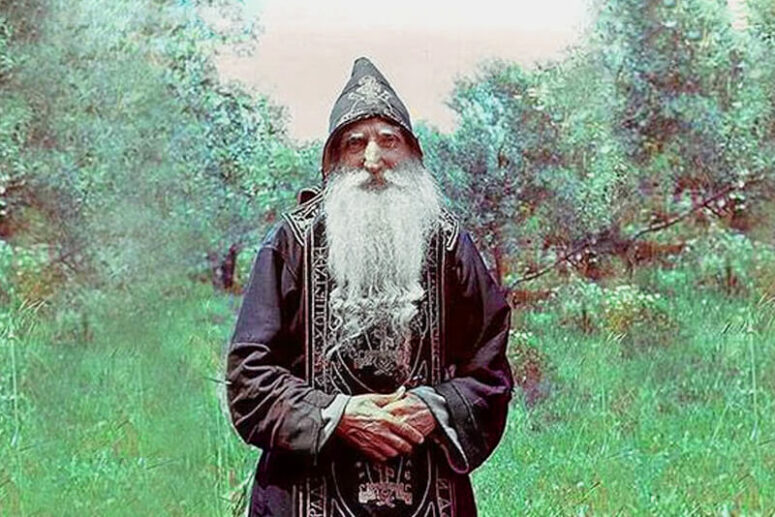
On the second Sunday after Pentecost, the Church celebrates the feast of all Russian saints and commemorates the Athonite ascetics. Both church holidays converge in the life of Father Tikhon.
An Athonite monk from Russia and a spiritual father of St. Paisios of the Holy Mountain; he was an example of holiness equal to the most revered elders of our time. Yet his name is still consigned to oblivion. Let me concentrate on the life of this venerable elder.
Anticipating his departure, Elder Tikhon carved an epitaph on his burial cross that said, “Sixty years on Athos as a single day.” The boy Timothy (his baptismal name) was in Novomikhailovka, a remote village in what is now the Volgograd Region of Russia. His family were pious and wanted Timothy to become a monk.
At seventeen, he went on a pilgrimage to visit Russia’s different monasteries. His journey lasted three years. He stayed in over 200 monasteries and saw a vision of the Mother of God. One night, as he was travelling from one monastery suffering from extreme hunger, he walked into a baker’s shop to ask for a piece of bread, but the baker turned him away. The elder prayed to the Mother of God: “O Most Holy Theotokos, help me? Will you let me die of hunger and never become a monk?” No sooner had he said these words than the Blessed Virgin appeared to him in a vision in Her heavenly beauty with a loaf of warm white bread.
In the area where the young ascetic was travelling, the people never ate white bread, as they were only growing rye. Timothy ate the bread and shared some with the baker who had told him to go away. The baker said that he had not tried any bread as tasty as his. It was not until after many years that he recognised in the image of the Mother of God of Vladimir the One who gave him the bread.
After his pilgrimage of many years across Russia, he went on to ascetise for several months in some of the harshest and most remote areas of Mount Sinai. Then he tried his resolve in the Jordan Desert, observing a strict fast, enduring extreme heat and tempering his soul with many hours of prayer.
Finally, he directed himself to Mount Athos, the garden of the Most Holy Theotokos. Hours after he went aboard the boat that would carry him to the Holy Mountain he faced temptation. The enemy played a trick on him. Some young woman asked him to her house to pick up some money and gifts for the monks on Mount Athos. She lured the handsome young man inside, turned the key in the lock and tried to seduce the handsome young man. Timothy broke through the door and ran away, like the chaste Joseph.
In 1908, Timothy joined the Russian brotherhood of Belozerka Skete, numbering about a hundred monks from Russia. The main occupation of the brothers was icon painting. Timothy mastered the art of iconography to temptation, including the most difficult technique of gold embossing. Eventually, he took monastic tonsure with the name Tikhon. After five years at the skete, he left it in search of higher monastic exploits.
At the risk of digression, let me fill you in on the stages of monasticism and the steps that monastics should take in their ascent up the ladder. The first stage is the coenobitic monastery, where a new monk lives in full obedience for at least three years. Life at a skete is an intermediate stage between the coenobitic monastery and the hermitage. Monk Tikhon had already the foundations of solitary life on Mount Sinai and in the Jordan Desert.
The present-day monastic practices in Russia and Ukraine are tied to the coenobitic monastery, functioning as well-organised spiritual communities and economic units. There is nothing bad about it – all coenobitic monasteries live according to this principle. But without the prospect of spiritual growth, such a monastic life leads to a dead end.
Father Tikhon taught his disciple, Elder Paisios: “Work an hour and pray for an hour. No monk should devote too much of his time to work. He should dedicate at least as much time to prayer as he does to work. When a monk works longer than he prays, he stops being a monk. Especially when a monk becomes a hermit, prayer must become his primary occupation. An eagle may grow up with chickens, but at some point, he must leave the henhouse, or become like a chicken who does not know how to fly.”
Monk Tikhon lived an ascetic life at Karoli, one of the harshest places on Mount Athos. The lifeless cliffs overhanging the sea were hiding in their midst a wealth of spiritual treasures. When the world falls into a slumber, the souls of monks, who have died being alive, form a fabric of myriads of invisible threads and unite in the sacrament of the Hesychasm with the eternal light of the Triune God. Monk Tikhon made this inhospitable environment of Karuli his home for seventeen years.
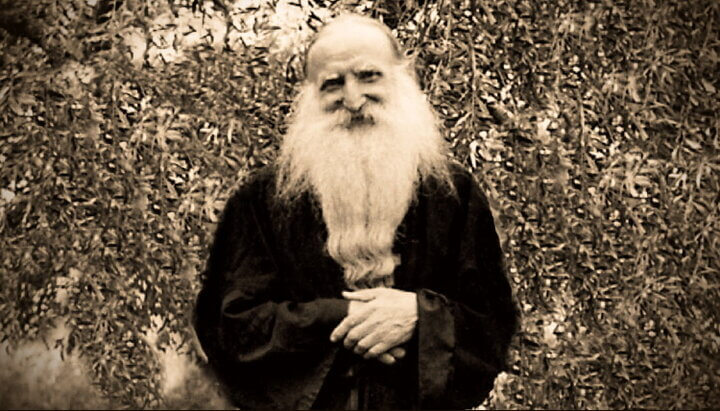
His exploits were on a par with those of the most revered ascetics of the ancient church. He also studied the word of God pursuing a demanding course of spiritual enlightenment under the direction of an experienced monk. The monk was a well-educated Russian elder who lived nearby and owned a large library. He gave monk Tikhon one book at a time to read for a month. He instructed him to study the book, and remember its content well enough to explain the gist to him. If monk Tikhon failed his test, the elder had him keep the book for another month and do the test again. As a student of the wise elder, monk Tikhon learned the Philokalia and acquired deep knowledge of the Holy Tradition of the Church.
After many years of spiritual exploits, Tikhon challenged himself to settle in even more austere places for prayer and seclusion, inaccessible to people from outside and moved to the impassable Kapsava Gorge. To reach him there, outsiders would have to find their way through dense bushes, struggling hard to cover every metre of the way. The gorge was located between the Aegean Sea on the East and tall mountains on the south. Father Tikhon found himself in a cave without any water and lived there for forty years.
But no luminary can hide from other peoples’ view while standing on top of a mountain. Monk Tikhon had already made a name for himself on Mount Athos as a saint, ascetic and a man of great spiritual experience endowed with versatile gifts from God. Eventually, people started coming to him for spiritual advice, finding him amid the wilderness. Monk Paisios, then a novice, was one of these people who became known worldwide as Venerable Paisios of Mount Athos.
Other monks approached him multiple times to convince him to become a priest so that he could hear the confessions of others. He refused, considering himself unworthy after all his spiritual exploits. The Divine providence intervened to make him change his mind.
Once during a night prayer, the elder had a vision: the sky opened up, and the Risen Lord appeared in the opening, surrounded by the light of Mount Tabor. This episode shook him from within. He sang Paschal hymns until dawn. He understood the meaning of this incident in the morning. When his spiritual father approached him hours later, he obeyed his command to go to the Stavronikita Monastery and accept his ordination.
As a hieromonk, father Tikhon built a small domestic church, installed an iconostasis, arranged an altar and procured liturgical vessels. But he did not have any money. Putting all his trust in God, he went to the capital of Mount Athos, Kareia. `There he met a pious monk and told him about his needs. The monk gave him all the money he needed saying: “It is from our donors for someone who wishes to build a church. It is yours.” Father Tikhon cried with joy. He had not even been ordained, but he already had the money.
The elder hired two builders. They worked with incessant prayer and completed the church quickly. It was the only church on Mount Athos dedicated to the Holy Life-Giving Cross of our Lord. The miracles it saw challenged all human imagination.
The elder was serving liturgy, in an empty church: he did not want anyone else to be present. His disciple, Paisios of the Holy Mountain, was singing behind a wall and could not see what was happening on the church floor. Yet, as elder Tikhon was praying, heaven was coming apart and the great heavenly host descended. Joy and tears overwhelmed him, leaving him speechless. Sometimes, his disciple had to sing the Cherybim’s hymn many times over before the elder could proceed with the liturgy.
Time stopped its flow as Father Tikhon stood mesmerised observing the wonderous scene unfolding before his eyes. His soul rose to the Throne of the Holy Trinity, beholding the Risen Lord in all His glory. The elder’s cherished dream was to celebrate liturgy for eternity in the Kingdom of Heaven. Towards the end of his life, he was confident of its reality, as God Himself had revealed it to him. “My beloved disciple, soon I will serve the liturgy in Heaven,” Father Tikhon said to Paisius shortly before his departure to God. Paisios was the only person to whom he could say with full confidence: “Here stood the Cherubim, and there the Seraphim, over there the Guardian Angel.”
The elder and his disciple lived in absolute poverty. The elder never took money in his hands, considering it a violation of the vows of monasticism. “Money is the blood of the poor”, he would say. Father Tikhon painted icons and exchanged them for bread and sewing supplies.
He ate very little; a spoonful of soup could last him for a day. Two planks of wood served him as a bed. He had a stool and ate from old cans. He wore a patchy under cassock and a dismally worn Skufia. No object in his room was good enough for a home, only for the landfill. A tattered cloak was his mattress. He slept under an old quilt with wool sticking out of its many holes. He let the mice take the wool piece by piece to lay their holes.
His body was becoming inured to discomfort, but his spirit was growing open to His grace. He paid little attention to mosquito and flea bites. Wild animals became his neighbours. A wild boar came near his cell to nurse her piglets, and a red fox stopped by to say hello. He shared his paltry food with the animals and let the insects suck his blood.
Father Tikhon’s angelic look left a deep imprint in the memory of all those who even met him. He was as calm and joyful as a child. Prayer never came off his mouth. Even in the rare moments of sleep, he continued his incessant prayer. Typically, he slept as little as fifteen minutes a day. He placed the two wood planks he used as a bed at forty-five degrees not to let himself sleep too long. All night, he stood in prayer with a rosary in his hand and served liturgy at dawn. When elder Paisios needed to leave and could not sing, he always heard the singing of a choir of angels when he returned. He knew that because there was nobody at church except Father Tikhon.
By the end of his life, Father Tikhon had acquired the full measure of God’s love and was overflowing with it. According to the most experienced clerics, that was one of the highest spiritual accomplishments that had ever been seen in a man throughout the history of Mount Athos. Unfortunately, the lack of space prevents us from covering the spiritual legacy of this great ascetic of our time. At its core was the idea of God as infinite and ultimate love and infinite humility, for which he had been reaching all his life.
He fell asleep in the Lord on 23 September 1968. His departure was as beautiful as the sunset that brings the quiet beauty of the silent moon-lit light. Father Tikhon dug his own grave. He put a shovel nearby “to make it easier to bury me”. Just before his death, the Mother of God visited him accompanied by St. Seraphim of Sarov and St. Sergius of Radonezh. He heard that it was time for him to go into the unfading glory of the Eternal Light. Father Tikhon fell asleep, only to wake up in heaven, the home for which he had aspired all his life.
Afterword
When I got acquainted with the life, teachings and memories of Elder Tikhon, I was absolutely sure that he was glorified by the Russian Orthodox Church as a saint, because an emerald of such crystal-clear spiritual purity cannot fail to be glorified as a saint. On Mount Athos, everyone who knew Father Tikhon was sure of the holiness of this Elder. When Venerable Paisios of Mount Athos, a disciple of Father Tikhon, was canonized, there were monks who did not agree with this canonization for some reason of their own. But there was not a single one who would say at least something against the holiness of Father Tikhon. But what was my surprise when I found out that Father Tikhon had not only not been canonized, but even the question of his canonization had not been raised.
“A Flower from the Garden of the Most Holy Theotokos”, the first book about Father Tikhon, belongs to the Greeks, in particular, Metropolitan Nicholas of Chalkida. They also canonized the Russian elders Silouan the Athonite and Sophrony (Sakharov). The spiritual children of Archimandrite Kirill (Pavlov), who gathered at the Trinity Lavra of St. Sergius to celebrate the centenary of the birth of this good Elder, were very surprised that not even a small film was made about this amazing person in honor of this date.
Now the same Greeks are carefully studying the spiritual works of another great Russian elder, Simeon the Athonite. The best confessors, and not only those from Athos, considered it a blessing to have communion with this hieromonk when he lived on the Holy Mountain.
I am sure that the time will come when God Himself will explain everything. The beauty of the flower garden of Russian holiness is in the purity, beauty and grandeur of its best sons and daughters, who pleased God, one of whom is Elder Tikhon (Golenkov).
Lord, give rest to the soul of Elder Tikhon and by his holy prayers have mercy on us sinners.
Translated by The Catalogue of Good Deeds
Source: https://spzh.news/ru/chelovek-i-cerkovy/89199-zhitije-starca-tihona-golenkova-i-pozor-russkogo-bogoslovija

